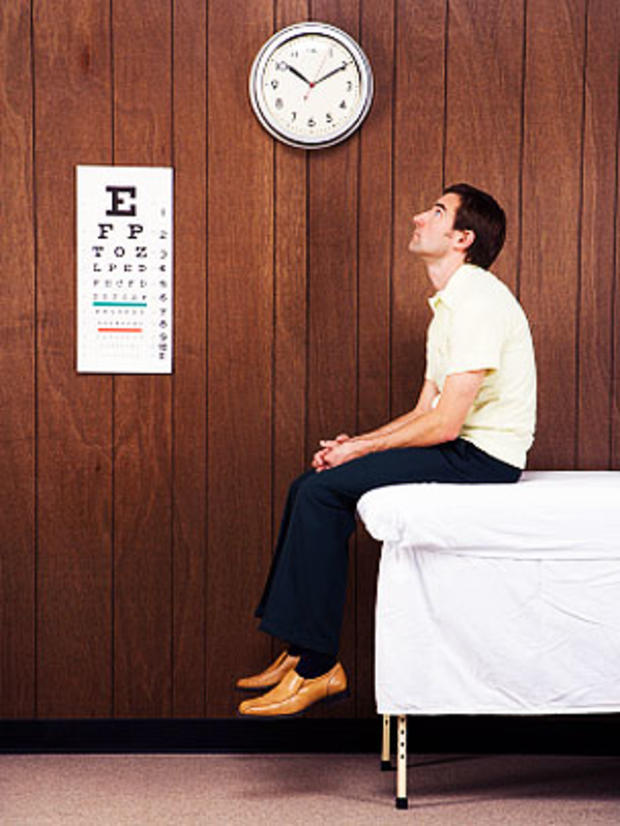Got cancer? 10 secrets for better decisions
Cancer is scary, and doctors sometimes sound as if they're speaking a foreign language when talking about the disease and its treatment. But "people are making life and death decisions that may affect their survival and they need to know what they're getting themselves into," says Dr. Angela Fagerlin, associate professor of internal medicine at the University of Michigan Medical School and a cancer researcher at the school. "Cancer treatments and tests can be serious. Patients need to know what kind of side effects they might experience as a result of the treatment they undergo."
What can cancer patients do to increase their fluency in the language of cancer? Keep clicking to see 10 suggestions from Dr. Fagerlin...
1. Insist on plain language
Don't understand something your doctor says? Ask him/her to give a better explanation.
"Doctors don't know when patients don't understand them, says Dr. Fagerlin. "They want patients to stop them and ask questions."
2. Focus on the absolute risk
Cancer care can be risky, so it's important to learn the facts about risks before you consent to any cancer test or treatment. Sometimes doctors talk about relative risk, saying things like "This drug will cut your risk in half." But such statements don't really indicate what you need to know, and research has shown that using relative risk makes both patients and doctors more likely to favor a treatment, because they believe it to be more beneficial than it actually is.
For a true picture, ask your doctor about the absolute risk of any treatment he/she recommends. "The drug will lower your risk of cancer from 4 percent to 2 percent" lets you know that most people won't get cancer regardless.
3. Visualize your risk
Sometimes it's hard simply to think about risk numbers. So Dr. Fagerlin recommends drawing 100 boxes and coloring in one box for each percentage point of risk. If your risk of a side effect is 10 percent, for example, you would color in 10 boxes.
This kind of visual representation, called a pictograph, can help you better understand what the numbers mean.
4. Think of risk in terms of frequency
What does it mean, exactly, if a doctor says 60 percent of men who have a radical prostatectomy will experience impotence? Imagine a roomful of 100 men. Sixty will have this side effect and 40 will not. Thinking of risk in terms of groups of people helps make complicated statistics a bit easier to understand.
5. Focus on additional risk
When evaluating a proposed treatment, it's important to compare the risk of something happening if you get the treatment vs. the risk of that if you forgo the treatment. For example, say a doctor says the risk of experiencing a certain medical problem if you take a drug is 7 percent. If you didn't take the drug, is there a chance you'd still experience the problem?
Always ask what the additional or incremental risk of a treatment is. "You want to make sure the risk number you're being presented is the risk due to the treatment and not a risk you would face no matter what," Fagerlin says.
6. Pay attention to all your doctor says
Studies have shown that the last thing a doctor tells you in a conversation is likely to be the thing you are most likely to remember. But when you're making a decision about treatment, it's essential that you remember all the facts and statistics you've heard.
7. Write it down
One great way to keep track of everything you're told is to write it down. At the end of the discussion with the doctor, ask him/her if a written summary of the risks and benefits is available - or ask the doctor to help you prepare a written summary of the information.
8. Don't get hung up on averages
Picking appropriate care for cancer involves playing the odds. But studies suggest that learning the average risk does not help patients make good decisions about what's best for them. Your risk is what really matters - not anyone else's. Be sure to focus on the information that applies specifically to you.
9. Consider possibility that less is more
Too much information can be overwhelming. In some cases, there may be many treatment options but only a few that are truly germane. Ask your doctor to narrow it down and to limit his/her discussion to the options and facts most relevant for you.
10. Consider your risk over time
Your risk may change over time. If you're told the five-year risk that your cancer will return after a certain treatment, ask what the 10-year or 20-year risk is. In some cases, the data might not be available - but always be mindful of the time frame involved.










